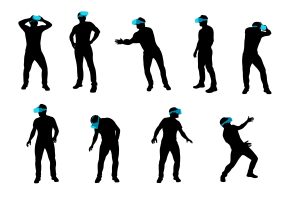Social anxiety disorder (SAD) has an early onset, a high lifetime prevalence, and may be a risk factor for developing other mental disorders. Gaze behaviour is considered an aberrant feature of SAD. Eye-tracking, a novel technology device, enables recording eye movements in real time, making it a direct and objective measure of gaze behaviour. Virtual reality (VR) is a promising tool for assessment and diagnostic purposes. Developing an objective screening tool based on examination of gaze behaviour in SAD may potentially aid early detection. The objective of this current study is, therefore to examine gaze behaviour in SAD utilising VR.
A case–control study design is employed in which a clinical sample of 29 individuals with SAD will be compared with a matched healthy control group of 29 individuals. In the VR-based eye-tracking paradigm, participants will be presented to stimuli consisting of high-res 360° 3D stereoscopic videos of three social-evaluative tasks designed to elicit social anxiety. The study will investigate between-group gaze behaviour differences during stimuli presentation.
Scientific Publications from Researchers Using iMotions
iMotion is used for some of the most interesting human behavior research studies done by top researchers around the world. Contact us to have your publication featured here.
All Publications









